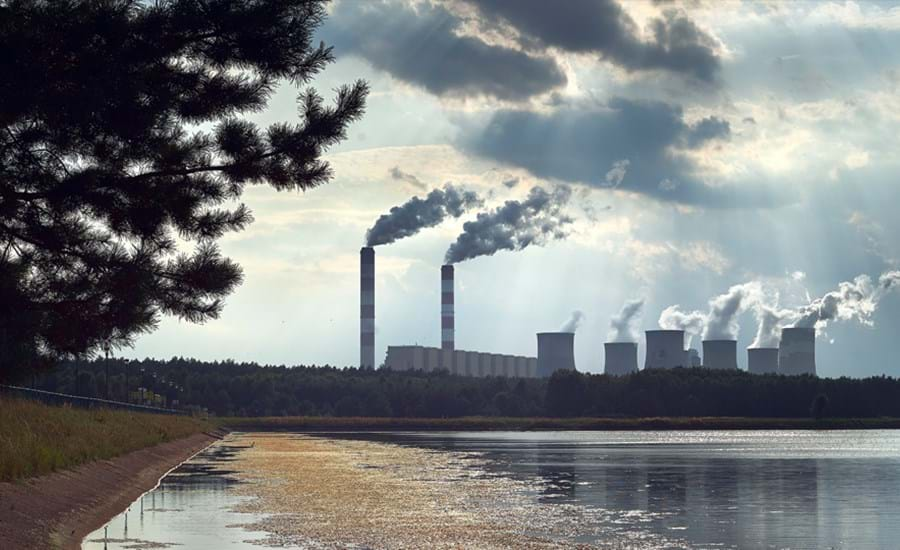Climate action: what we've achieved in 2021
It's been a big year for ClientEarth.


It's been a big year for ClientEarth.
After two fraught weeks in November, COP26 resulted in the signing of the Glasgow Climate Pact. It included new and reshaped commitments to tackle climate change and set the agenda for climate action in the coming decade. However, the pact is not legally binding. And there is still a gap between what COP26 achieved, and what is urgently needed to address the climate crisis.
That’s why our work is so vital – we use the power of the law to hold governments to account, challenge climate-damaging decisions, and help to shape legal systems that benefit people and planet. Whilst COP happens, at most, once a year, we’re working to tackle climate change every single day.
And we’ve had some big successes in 2021.
As the year draws to a close, we’ve rounded up a list of what we achieved in the past 12 months, alongside the pledges, promises and commitments made by global leaders at COP26.
For the first time during a COP, we saw an explicit plan to reduce the use of coal. However, the final Glasgow text contained some fairly weak language around doing so – referring to ‘phasing down’ the use of coal rather than ‘phasing it out’, largely due to a late intervention by China and India.
For us to effectively tackle climate change and meet the Paris Agreement goal of 1.5C warming, we must consign coal to history. 'Phasing down' is not enough.

We launched a lawsuit against the operators of Belchatow coal plant in Poland – Europe’s biggest, and also one of its largest emitters of greenhouse gases. We also worked with FrankBold and Greenpeace Poland, supporting local residents to fight the digging of a new mine that would feed Belchatow beyond 2030. Now, Polish authorities have cancelled the permit for the mine to go ahead, and announced that Belchatow will start to wind up its operations.
Despite coal being indisputably not clean, some companies in Poland have been promoting ‘eco-pea’ coal as more eco-friendly than other types. We disproved this, and are taking legal action against the blatant greenwashing.
We supported German residents to challenge the country’s newest coal plant, Datteln IV, which has been built on the doorstep of a children’s hospital, as well as hundreds of homes. The court ruled that permission to build the plant was granted illegally. The German government has now announced it will be phasing out coal by 2030.
Earlier this year, we further expanded our legal and policy work in Asia, alongside our established presence in China, to help accelerate the clean energy transition in the region.
Cutting coal from the energy sector is one necessary action to drastically reduce global greenhouse gas emissions. We must keep moving forwards towards a future built on clean, renewable energy.
This means we’ll keep fighting in court to close coal power plants and secure a green future for those who have been employed in the coal industry. We’ll keep exposing misleading advertising by fossil fuel companies, as well as advocating for bold government action against coal.
As a result of COP26, two-fifths of the world's financial assets, $130 trillion, are now under the management of banks, insurers and pension funds that have signed up to 2050 net-zero goals, including limiting global warming to 1.5C.
The UK Treasury also revealed a set of steps to pour trillions of pounds into tackling climate change. Among other measures, it announced that by 2023 most UK-listed companies will have to set out detailed public plans for how they will move to a low-carbon future, with standards set out by an expert panel. This is in line with the UK’s target to reach net zero by 2050.
System-level shifts towards net zero are urgently needed, and the Treasury’s promises are encouraging. But we need all companies to play their part in the transition by planning to adjust to a low carbon world, not only listed firms. What’s more, the UK Government needs to address the ease with which carbon-intensive companies can list on the London Stock Exchange, without additional disclosure burdens or barriers for detriment.
Finance is essential in the fight against climate change. We need all companies of all sizes to report on climate impacts on their business and plan for the transition, and we need pension funds and those in charge of people’s savings to manage climate risks. We need banks and insurers to align with the goals of the Paris Agreement and phase out financing for fossil fuels, and to realise all of this, we need climate considerations to be integrated into regulations and law.

We launched a lawsuit against the Belgian National Bank for failing to fulfil environmental protection and human rights requirements when purchasing corporate assets, many of which are from companies that are fuelling the climate crisis.
Neither the food delivery platform nor the cruise line operator are addressing how the climate crisis will affect their operations and finances in investor reports. So we referred the two firms for investigation and enforcement action to the Financial Conduct Authority, arguing that their failure to be clear with shareholders about the climate-related risks they are exposed to breaches their legal obligations.
We wrote to HSBC’s board members calling on the bank to implement a strategy to reduce its exposures to fossil fuel assets in line with the Paris Agreement.
Into 2022, we will be continuing to put pressure on banks, financial business and companies to take urgent action on climate. We’ll keep pushing for proper enforcement against laggards, and we’ll help shape laws and regulations that effectively compel financial and corporate firms to set out how they will transition to a net zero world.
More than 100 world leaders at COP26 announced their commitment to ending deforestation by 2030. This was a positive step forward, signed by countries that import forest commodities, like the UK, and those that export them, like Brazil and Indonesia.
For it to translate into action, the commitment needs teeth. It must address how deforestation is defined and measured, set binding milestones, address financing issues, and ensure participation and protections for local communities and Indigenous peoples. To ensure countries live up to their promises, transparent and robust monitoring is essential.

We expanded our community forestry work from West and Central Africa into Southeast Asia to bring legal expertise and support communities defending some of the world’s most important forests. This includes developing a community forestry toolkit, which helps support laws that enshrine the management rights of indigenous and local communities for forests worldwide. We’ve also conducted a legal assessment of Thailand’s community forestry act.
The EU's proposed deforestation law aims to halt deforestation and minimise the EU’s impact on nature worldwide. This is crucial for ensuring the EU’s footprint on nature aligns with its climate and biodiversity commitments.
We wrote an open letter to the UK Prime Minister stressing how the UK should ensure that its supply chains are not complicit in any form of deforestation – including the destruction of the Amazon.
We have been working with partners to improve EU forest biomass standards, which are currently insufficient at stopping forest destruction.
We are continuing to support a case to protect Ghana’s Atewa Forest from bauxite mining, as well as resuming work in Gabon, working with local partners to train and support local forests communities on their rights to forest land.
Despite citizens of the Global South and Indigenous communities suffering the worst effects of climate change, there was notable underrepresentation of their voices at COP26.
The final agreement pledged to significantly increase money to help developing countries cope with climate impacts like extreme weather events, and make the switch to clean energy. There was also the prospect of a yearly $1 trillion fund from 2025, after a previous pledge for more financially richer countries to provide $100bn a year by 2020 was missed.
The agreement also includes establishing a facility to support technical assistance on loss and damage from climate change in developing countries.
Agreeing to establish a facility to support technical assistance is far from providing financial support to compensate for loss and damage, which the coalition of least developed countries was pushing for.
Legal options to compel support from the worst polluting countries should be considered – and we are already seeing this from countries such as Vanuatu and Tuvalu. We need to see much greater funding to support the rising cost of adaptation as climate impacts intensify, particularly for the 6.5 billion people living in the Global South.

After 13 years of fighting, we finally achieved a landmark reform of EU access to justice laws. The reform lifts the main barriers preventing NGOs and people from challenging environmental wrongdoings in court, meaning that anyone can now take the EU to court over climate-damaging decisions and practices.
We’ve been supporting a group of Torres Strait / Zenadh Kes Islander Traditional Owners in their complaint to the UN Human Rights Committee against the Australian government. The complaint alleges that the government is not doing enough to address climate change, which is having a devastating effect on their island homes.
In 2022, we will continue to call out misleading advertising and push for new laws that effectively guard against greenwashing. We will hold governments and companies accountable for failing to deliver on their promises. And we will support communities on the frontline of the climate crisis in seeking climate justice.
